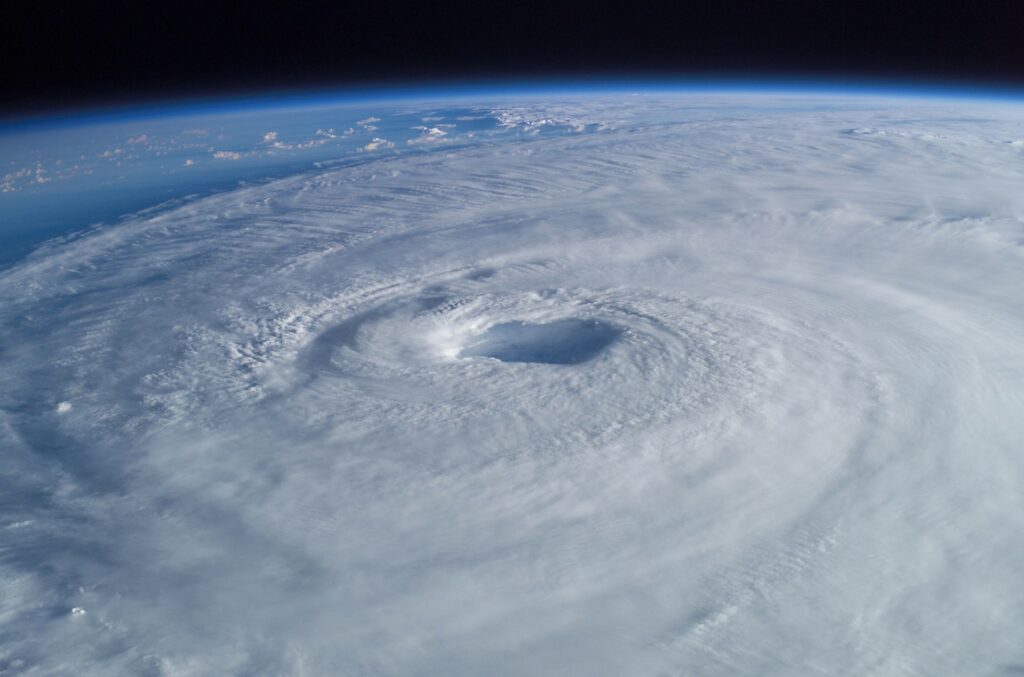A new NOAA study analyzing four decades of tropical cyclones has found that a reduction in particulate air pollution in Europe and North America has contributed to an increase in the number of tropical cyclones in the North Atlantic basin and a decrease in the number of these storms in the Southern Hemisphere.
The study also found that the growth of particulate pollution in Asia has contributed to fewer tropical cyclones in the western North Pacific basin.
Hiroyuki Murakami, the study’s author and physical scientist at NOAA’s Geophysical Fluid Dynamics Laboratory (GFDL), said, “Air pollution is a big environmental risk to human health and we have made great strides in reducing health risks by reducing particulate air pollution. But reducing air pollution does not always decrease the risk of hazards from tropical cyclones.”
While several studies have examined how increasing greenhouse gas (GHG) emissions impact global tropical cyclone activity, this study examines how particulate pollution in combination with climate change is affecting tropical cyclones in different areas of the planet. Murakami used a climate model developed at NOAA GFDL to analyze the data and produce the findings.
According to the report, the increasing absence of anthopogenic air pollution in the Northern Hemisphere, estimated to be a 50% drop in concentration from 1980 to 2020, has led to surface warming over the tropical Atlantic Ocean, which contributes to more frequent tropical cyclones. Without significant amounts of particulate pollution to reflect sunlight, the ocean absorbs more heat and warms faster. A warming Atlantic Ocean has been a key ingredient to a 33% increase in the number of tropical cyclones during this 40-year period, Murakami said.
The decrease in pollution has also led to a warming of the mid- and high-latitudes in the Northern Hemisphere. This warming of land and ocean is causing the steady poleward movement of the jet stream from the tropics toward the Arctic. The shift of the jet stream led to weakening westerly winds in the upper troposphere in the tropical Atlantic basin, an area of the atmosphere about 10 to 12 miles from the surface of the earth. Weaker winds, in turn, mean that there is less difference between the speed of winds in the lower and upper troposphere or less wind shear. With little wind shear, tropical cyclones are able to develop and grow in strength over the Atlantic Ocean.
The Earth system processes at work in the western North Pacific – an area where strong tropical cyclones are called typhoons – are the flip side of what’s happening in the Atlantic basin. The key ingredient for the decrease of tropical cyclones in the western North Pacific is also air pollution, according to the new research. In this case, a 40% increase in the concentration of particulate air pollution has been one of several factors that has contributed to a 14% decrease in tropical cyclones, Murakami said. Other factors include natural variability and increased greenhouse gases.
Over the western North Pacific Ocean, increasing air pollution from the rapidly developing economies of China and India have reduced the strength of the Indian monsoon winds in the summer. The increased pollution is cooling the land in East Asia, serving to reduce the difference between the temperature of the land and the ocean.
“This study indicates that decreasing air pollution leads to an increased risk of tropical cyclones, which is happening in the North Atlantic, and could also happen, if air pollution is rapidly reduced, in Asia,” said Murakami. “The ironic result suggests the necessity of careful policy decision-making in the future that considers the pros and cons of the multiple impacts.”
Murakami added that the projection for the next decades is that human-caused particulate air pollution will remain stable in the North Atlantic and that increased greenhouse gases will become a more significant influence on tropical cyclones. The projection is for fewer numbers of tropical cyclones, but those that occur are likely to be more intense.
To view the complete study published in the journal Science Advances, click here.



